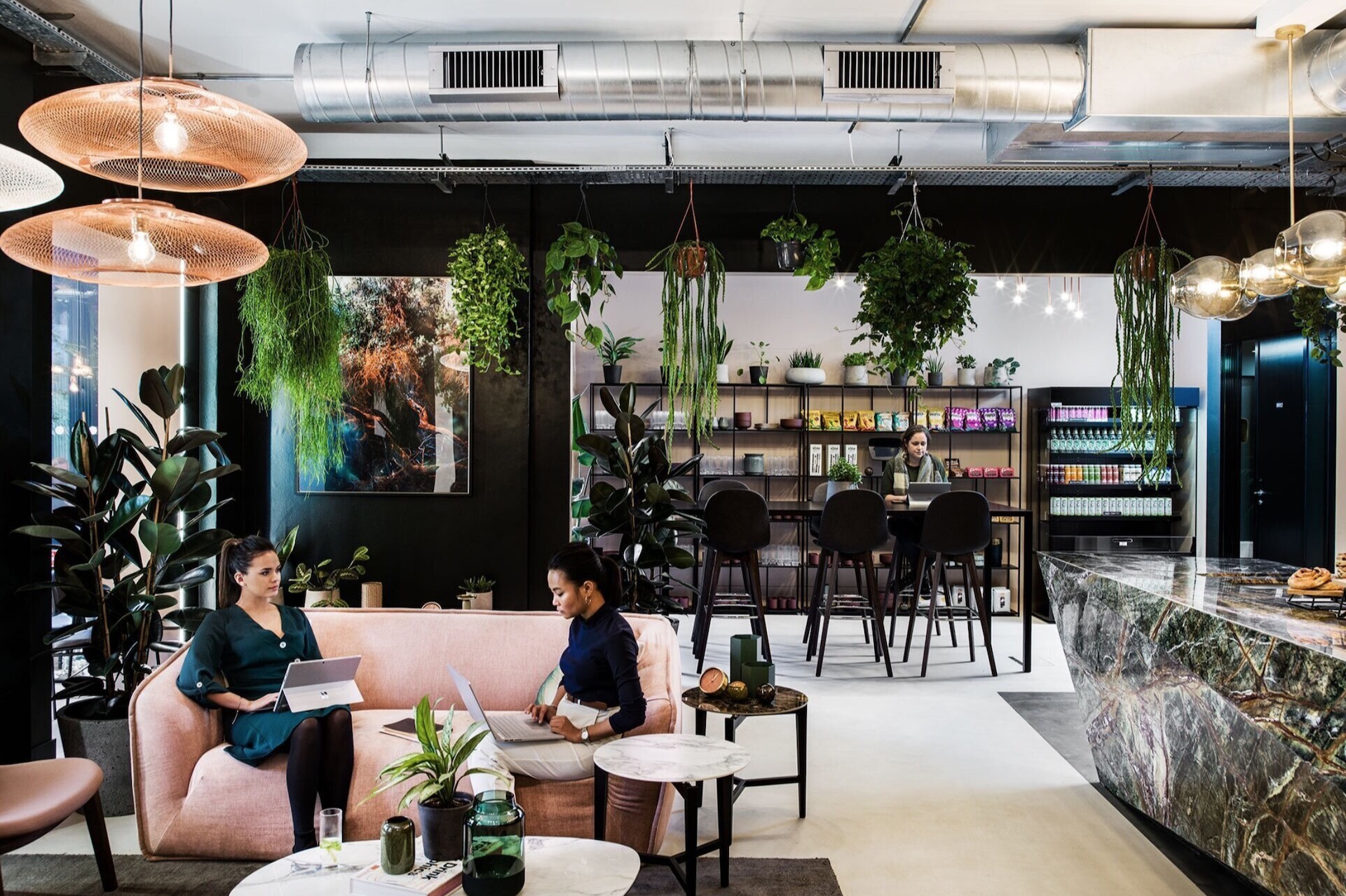Friday 21st February 2025
Actually, Working From Home Isn’t The Most Sustainable Option

No matter what type of business you’re building, your carbon footprint matters. Not too long ago, having a more sustainable office meant travelling less and offsetting emissions.
Then came the pandemic, where remote working became every company’s go-to sustainability solution. It makes sense, right?
Well, the truth is a little different.
In new research shared by the BBC, engineering firm WSP UK showed that remote working isn’t actually the most sustainable option your business can make all year round.
How exactly? Let’s start with the facts:
New data shows that working from home isn’t sustainable in winter
WSP UK examined the carbon output of 200 UK-based workers across different locations.
Their findings were pretty surprising: the environmental impact of remote work was higher in the winter due to the need to heat individual workers’ buildings vs. one office building.
Energy management in offices, coworking spaces and commercial buildings is generally more efficient than in individual homes.
Imagine every remote worker having their heating on in the depths of winter.
Each remote worker keeps the heating on and tends to heat the entire house.
Compare that with working in a single office building and that’s a much lower carbon impact, even with the commute added in.
Interestingly, remote working in the UK in summer makes more sense, environmentally-speaking, because our energy consumption is far lower than in winter.
At least, that's the case for now.
With climate data showing UK summers are on track to continue getting hotter, air-con is likely to become more commonplace.
The result? More energy is also likely to be spent remote working during summer.
Being sustainable matters for employee retention
It’s no secret that sustainability is the future.
A study carried out by Kin & Co found that 13% of employees would resign if their organisation didn’t take action on climate change.
Plus, a survey conducted by TopLine Firm discovered that 24% of office workers would refuse a job at an organisation with a poor sustainability record.
As more companies start looking into sustainable offices and longer-term working practices, an alternative to remote work is likely to be on the agenda.
This is where providing your team with access to local workspaces can really help.
Say you’re a company of a few dozen or a few thousand employees.
Right now, you’re figuring out your remote working policies.
Maybe you’re exploring hybrid work.
Perhaps you’re hearing from your team that they don’t want to commute.
You care about your team – and you also care about the planet.
You have sustainability goals to meet and retention metrics to hit.
We get it.
Instead of suggesting full-time office working, why not try offering your team access to local workspaces when they need it?
Flexible workspace can help you fulfill your CSR and sustainability goals
One option being shared by experts is a hybrid working solution between working remotely and working from the office, where employees work from home on the same days.
Companies wouldn’t have to use office energy on those days or waste energy for empty seats when people choose different remote days, either.
Another idea that companies can easily implement is giving their teams access to flexible workspace on-demand.
At Tally Workspace, we’re the flexible workspace solution for teams, providing teams with access to hot desks, meeting rooms and private spaces.
Anywhere. Any time.
Our selection of 1000s+ venues help boost employee satisfaction and lower costs, too.
And the positives don’t end there.
Coworking and flexible workspaces have huge geographic coverage.
With multiple prime locations, both in and outside the city, they can help your team reduce their commutes and emissions by creating more workspace options closer to where your team members live.
By enabling employees to work close to their homes, Tally Workspace drives sustainability by significantly reducing pollution caused by commuting. Currently, commuting generates 77.8 million tonnes of CO2 emissions every year in the UK, accounting for 27% of total emissions as analysed by Compare By Move.
By utilising hyperlocal workspaces three times a week, each employee can save 0.6 tonnes of CO2 per year.
That is 8.6 million tonnes if every desk-based employee in the UK did the same.
Whatever your situation, Tally Workspace can help.
Interested in trying out local, flexible workspace or a full-time office for your team?
Get in touch. We’re working with companies across the UK to help their teams stay healthier, happier and more sustainable.
Join us.
Written by Laura Beales


